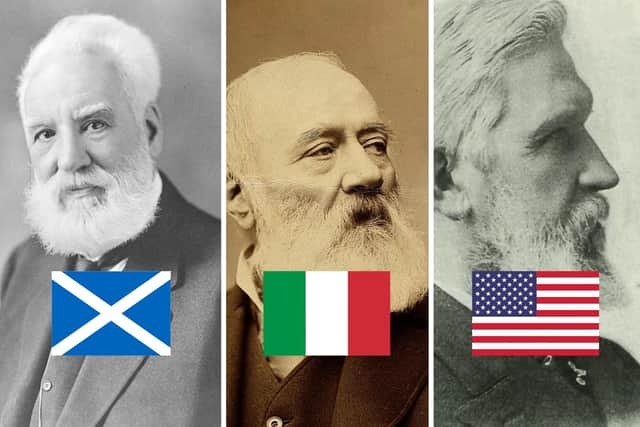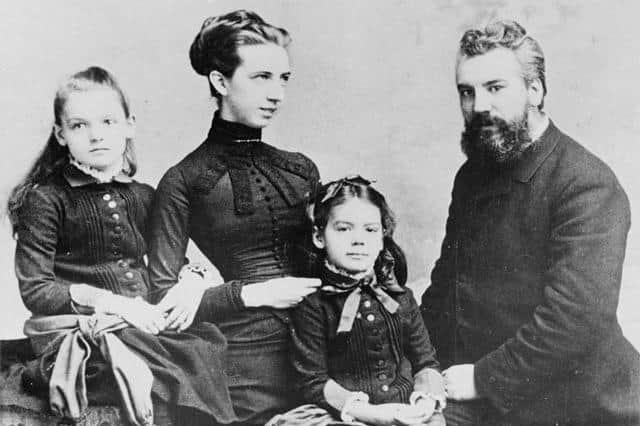Who invented the telephone: Did ‘Scotland’ do it or was it someone else? Historians debate
Scotland has received a great deal of praise for ‘inventing the modern world’, but in the case of the telephone if a Scot says to an Italian or an American that we invented it first a fiery debate may ensue. Crediting inventors can often be tricky because inventions are attributed to the inventor of the best-working iteration of the device rather than the original version, or, the person who submitted the patent first.
In which case, was Alexander Graham Bell truly the ‘father of the telephone’ and if not then who invented it first? Here’s what we know.


Who invented the telephone?
Advertisement
Hide AdAdvertisement
Hide AdScottish-born inventor Alexander Graham Bell is credited for inventing the telephone back in 1876. According to the Canadian Encyclopedia, Bell was born in Scotland in 1847 and emigrated to Canada with his family in 1870 before eventually becoming a teacher for deaf people in the U.S.
It is said that during a visit to his hearing-impaired mother in Canada, Bell conceived the idea of “electronic speech” which would lead to his telephone design being the first one ever patented. However, he is not the only inventor to conceive a "talking telegraph”.
Who else is credited with inventing the telephone?
An Italian immigrant named Antonio Meucci began development of a telephone in 1849. By 1871, he filed an announcement for the invention (called a caveat) for its design but due to difficult circumstances he could not renew the caveat. Until 2002, his telephone invention was overlooked by the United States House of Representatives but a resolution now exists to honour his contributions.
Other historians debate that Elisha Gray, an American inventor credited by some as the telephone’s father, lost out on the recognition as he applied for a caveat of the telephone on the same day Bell applied for his patent but Gray was represented by his lawyers who performed this task too late.
According to the Library of Congress, on that day, February 14, 1876, Bell was the fifth entry at the patent office while Gray’s caveat was 39th, leaving Bell to be credited as the inventor.


Was Alexander Graham Bell Scottish?
Alexander Graham Bell was born in Edinburgh, Scotland, back in 1847. According to History.Com, his Scottish-born father was a professor of speech elocution at the University of Edinburgh while his English-born mother was a deaf yet accomplished pianist.
The debate as to Bell’s nationality stems from the fact that he emigrated to Canada with his family in 1870 yet he married an American woman which saw him become a naturalised American citizen as of 1882. In 2019, widespread debate was sparked on this after the former US President Donald Trump wrote on Twitter that Bell was American.
However, given that Bell moved to Canada when he was aged 23 this meant he was truly born and raised in Scotland and therefore he is regarded as such by most people here.
Comments
Want to join the conversation? Please or to comment on this article.
